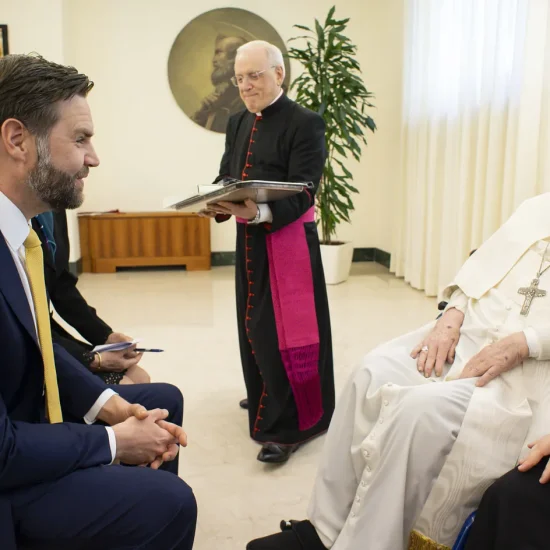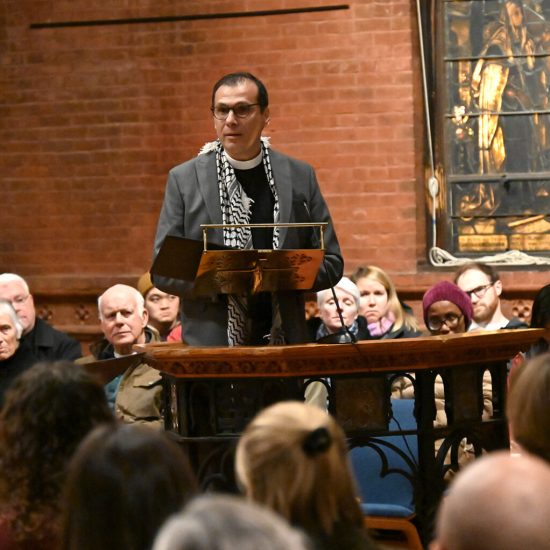
In 2014, a Baptist pastor in Montana active on social media and the blogosphere confessed and apologized for behavior described by critics as “cyberbullying.” J. D. Hall, pastor of Fellowship Church in Sidney, Mont., had for years been an active online voice in Southern Baptist life, attacking those he found heretical or too liberal. Viewing himself as a modern-day Charles Spurgeon saving the SBC from a liberal “modern-day downgrade,” he set his sights in 2014 on Ergun Caner, at the time the president of Brewton-Parker College in Mt. Vernon, Ga., which is affiliated with the Georgia Baptist Convention. Hall used his blog and social media to attack Caner and Southern Baptist leaders defending Caner. Hall also sent critical messages in July of 2014 to Caner’s 15-year-old son, Braxton, attacking the morality of Braxton and the teen’s profile photo.
On July 29, 2014, Braxton committed suicide.
Although Hall initially defended his online interactions with Braxton, he eventually apologized after being accused of cyberbullying, stalking and harassment — including by other critics of the elder Caner who disagreed with Hall’s actions toward the son. Recent research shows cyberbullying makes young people more than twice as likely to self-harm or attempt suicide. Suicide rates among U.S. teens increased over the past decade — just as social media usage surged.
“I candidly looked around and didn’t recognize what I had become,” Hall noted in his August 2014 confession published by Associated Baptist Press (now known as Baptist News Global). “My friends suggested that the over-zealousness of a reckless critic is ultimately no better than error.”
“I do realize that God never needed me to right every wrong in the denomination,” Hall added as he noted problems with his “adversarial” tone. “He can settle his own accounts. His arm is long, both to save and to bring vengeance. In my zeal, there has been a disconnect between my theology and my methodology.”
Hall also noted that in addition to being “crushed” and “broken” by the younger Caner’s suicide, the incident had “forever changed me, in more ways that I can currently comprehend.” Soon, however, he returned to his keyboard to tilt against supposed heretics in Baptist life.
Hall, who often posts several pieces per day, has in recent months repeatedly turned his crosshairs on targets like Southern Baptist leaders J.D. Greear and Russell Moore, as well as David Dockery, Wendell Griffen, Martin Luther King Jr., Tim Keller, Beth Moore and even Ergun Caner. His site frequently includes anti-Semitic tropes, and blasts efforts to dialogue with Catholics or fight racism.
When controversy erupted in December about Southwest Baptist University in Bolivar, Mo., firing Clint Bass, a professor in the school’s Redford College of Theology and Ministry, dozens of people took to Twitter, Facebook and other online platforms to attack the school based on the account of just one side. Claims bounced around that he was fired for his beliefs or for being too conservative, though later statements by SBU and even documents released by Bass instead pin his dismissal on allegations of inappropriate behavior. Yet, no critic online reached the level of that of Hall, either in amount of content or in adversarial tone.
In posts riddled with factual errors and rumors, Hall claimed SBU’s administrators and trustees “approved of heresy,” “shamed their Lord and Savior,” are “obscenely idiotic” and “are nothing but modern day Pontius Pilates.” Hall, who previously left the Southern Baptist Convention for supposedly being “lukewarm,” too liberal and not Calvinist enough, urged Missouri Baptist churches to discipline SBU leaders and leave the Missouri Baptist Convention if the alleged heretics are not removed. For one post, he even put up a photo of one of the attacked Redford professors preaching at a conference at Heritage Baptist Church in Lebanon, Mo. — and added a quote on the photo about “when the father of lies enters the pulpit.”
Despite the tone of the posts — or perhaps because of the harsh tone — his pieces were passed around Missouri Baptist circles. Controversial posts bring in clicks, which increases ad revenue for the site. And this is not some little, random blog. His site receives more traffic than national Baptist media sites like Baptist News Global and the SBC’s Baptist Press.
And his claims will sit in the online world for years, leaving his inaccurate criticisms of various SBU professors and leaders out in the public. If people do not consider source credibility, his attacks might even be believed after a Google search. Just about anyone can post just about anything online. A classic New Yorker cartoon captured this understanding with two dogs sitting at a computer, with one commenting, “On the Internet, nobody knows you’re a dog.”
Hall told Word&Way he does “not care about tone because I am intellectual and thoughtful, not emotive.” He brushed aside questions about his aggressive tone by saying his blog is a real journalistic site since it gets more traffic than Baptist news sites — thus using clicks, not facts, to judge accuracy. He also argued it was not good journalism by Word&Way to ask about a harsh and inaccurate tone, claiming instead that “we should be sticking to the facts of the case.”
Yet, many theologians and journalists believe tone does actually matter.
Age of Outrage

Ed Stetzer
Ed Stetzer is concerned that our tech-driven culture of outrage is influencing how Christians behave, rather than Christians transforming our society. A former leader at the SBC’s LifeWay Research and North American Mission Board, he now serves as executive director of the Billy Graham Center and dean of the School of Mission and Ministry at Wheaton College in Wheaton, Ill. Last fall, he released his latest book, “Christians in the Age of Outrage: How to Bring Our Best When the World is at its Worst.” In particular, Stetzer blames technology for having “fueled our culture of outrage” since “outrage gets clicks.”
“Facebook is a cesspool of conspiracy theories, straw-man arguments and schoolyard bullying,” he argued. “We have reached the point where the comment sections of major newspapers are a greater testament to the depravity of man than all the theology of the Reformers put together.”
“Outrage has no time for dialogue, and it won’t be distracted by nuance or even truth,” he added. “During a time of 24/7 cable news and social media, it is the controversial but confident shouting personalities who garner followings, even if what they say is demonstrably false. We live in a time when one can often be wrong but seldom, if ever, in doubt.”
Stetzer’s concerns about technology match what researchers in fields like communication, journalism, political science and other disciplines have found. Social media has led to more isolated communities or “echo chambers” where people only hear one side of an issue. The research also shows emotionally-charged posts receive more attention (in retweets or likes), inaccurate posts often outperform factual ones, conspiracy theories gain more traction and online commenters use a more aggressive tone than in face-to-face communication.
Stetzer, a frequent target of Hall’s critical posts, laments that often even for Christians “outrage overwhelms truth.” When Christians engage in such behavior, he sees it as adding to “the perception that Christians are rage-addicted snowflakes,” and that therefore “makes Christians look foolish” and “hurts the gospel.”
“Lest we get on our high horses about all those bad, angry people out there, we need to recognize that outrage often comes from Christians,” he argued. “We can quickly devolve into behavior that is anything but humble, loving and sacrificial. Instead, it is often prideful, domineering and pushy.”
“Christians contribute to the outrage around us when we behave badly rather than lovingly communicate the Good News of the gospel message,” he added.
Stetzer noted that one problem comes from Christians who “are hunting for the slightest heresy, the slightest scandal and the slightest misstep to pounce on.” Sometimes this is just “clickbait,” provocative and controversial — even if inaccurate — headlines designed to get people to click and therefore improve ad revenue for a site.
“Little thought is given to whether what they are saying is true, constructive or good; the point is to generate as much attention as possible,” he added. “They know that the question they constantly ask themselves — What will get me likes or views? — depends on how much outrage they can provoke.”
Stetzer fears most churches have not considered teaching Christian discipleship for these new forms of technology, thus offering little or no input on how Christians should or should not engage online. This, in turn, leads Christians to adopt more aggressive and hostile tones online.
Yet, Stetzer, who is an active tweeter and blogger, sees the web and social media as great tools for evangelism and ministry. He noted that “technology is neither inherently good nor bad.” Instead, it depends on how people use the technology.
Good, Bad & Ugly
Aaron Weaver has seen the positive and negative sides of Baptists on social media and blogs. The communications director for the Cooperative Baptist Fellowship and author of the book “James M. Dunn and Soul Freedom,” Weaver has also blogged for years at his site thebigdaddyweave. com. He uses the site to promote ideas and efforts (like those at CBF), as well as to offer commentary on public issues or critique problematic figures.

Aaron Weaver
As a blogger, Weaver in 2012 uncovered that Richard Land, then-executive director of the SBC’s Ethics & Religious Liberty Commission, plagiarized remarks on the radio program “Richard Land Live!” As the controversy erupted nationally, the ERLC’s trustees reprimanded Land and canceled the radio program. The next month, Land announced he would retire from the ERLC.
Like the online efforts that toppled Egyptian dictator Hosni Mubarak or Southwestern Baptist Theological Seminary President Paige Patterson, Weaver’s post showed the power of the Internet and social media to hold powerful people accountable. He also sees the blogs and social media as tools for building relationships and enhancing ministry efforts.
“At their best, blogs and social media have been important platforms for connecting and forming friendships, sharing ideas and learning together,” Weaver told Word&Way. “The democratic nature of these platforms has allowed users to amplify voices typically unheard and raise awareness for historically neglected justice issues among many faith communities, from environmentalism to predatory lending to racial justice.”
“Perhaps most importantly, blogs and social media have helped hold Christian institutions and their leaders accountable, shining a light on patriarchy in practice and bringing out of the shadows abuses and coverups,” he added. “These benefits far outweigh the negatives of social media engagement.”
Although an evangelist for blogs and social media, Weaver does also recognize the dark side of the web.
“Social media has the ability to bring out the worst in some people when political and cultural topics are raised,” he explained. “Nice and pleasant people in real life can quickly take on a caustic persona via tweets and Facebook comments. From what I’ve experienced, the divisive tones are often encouraged and hyped by online personalities whose career is continuing the culture wars.”
Weaver, whose organization has been a target of Hall’s and other blogs, particularly noted how fundamentalism can spark a harsher tone.
“We also see how fundamentalism expresses itself in social media spaces with conservative evangelical leaders (and their followers) frequently using their platforms to play a ‘gatekeeper’ role offering judgments on, essentially, who is and isn’t a real Christian,” he explained. “Tribalism and triumphalism accompany a demand for theological purity, and when an influential Christian voice steps out of line, evangelical Twitter pounces and is quick to bid a snarky ‘farewell.’”
“We see the purity-test demands in other ideological spaces, too, but I’ve personally found the toxic tenor coming most frequently from Christians who simply don’t respect an egalitarian perspective and don’t value a diversity of viewpoints,” he added. “When there’s no ability to ‘agree to disagree’ and find ‘unity in diversity,’ dialogue becomes extremely difficult.”

Pope Francis (Catholic Church in England and Wales)
Pope Francis, a frequent target of Hall and other fundamentalist bloggers, offered a similar message on Jan. 24 as part of his annual World Communications Day message. He noted that “the Internet represents an extraordinary possibility of access to knowledge,” but also can create a “distortion of facts and interpersonal relationships.” Regarding the negative side, he specifically mentioned the growing problem of cyberbullying, as well as increasing “personal narcissism” and “self-isolation.”
“This multiform and dangerous reality raises various questions of an ethical, social, juridical, political and economic nature, and challenges the Church as well,” Francis added. “While governments seek legal ways to regulate the web and to protect the original vision of a free, open and secure network, we all have the possibility and the responsibility to promote its positive use.”
An active user of Twitter, Francis is the second-most followed world leader — behind only U.S. President Donald Trump. Francis urged Christians to view other Christians as members of the same body and created in the image of God, not as “an adversary” or “our enemies.” Thus, he urged Christians to engage on social networks “not to entrap, but to liberate.” He added that the focus should not be on ‘likes’ but on welcoming others.
As Weaver noted, Christians should care about truth and civility. And perhaps because of the problematic tone that can often emerge on social media, a Christian witness is needed there even more.
“As Christians, we should be careful to only share news from reliable sources, and should be more discerning before tempted to share content intended to divide or put others down,” he said. “Despite some of the negatives, Christians should continue to engage via social media, doing so in good faith and respect for others, out of our shared calling to seek justice and love our neighbor. Public spaces such as social media platforms still need a healthy Christian witness, which we can offer when at our best.”






